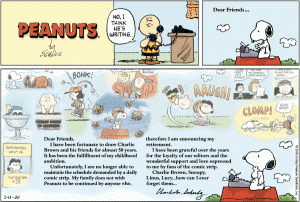Should I listen to your position if you cannot conceive that you could be wrong? Let’s plunge into the Deeper Waters and find out.
I am on a Facebook group for debating with Jehovah’s Witnesses where atheists pop in from time to time also because if there’s anything you learn about atheists, they have to show up everywhere to talk about how they don’t believe in God. Anyway, when I deal with a lot of non-Christians, there is a recurring theme. Sadly, this can also occur in a lot of fundamentalist Christians.
This is the idea that they cannot in any possible way conceive of a world where they could be wrong on anything.
I have a friend who used to say that some people would rather commit seppuku before conceding that maybe the other side had a point. No matter what a belief is, there are likely some things that the belief has right. If you insist that everyone in that position is wrong and doesn’t know what they’re talking about, you will miss out.
Not only that, but too often these people then persist in their beliefs thinking they know everything when those on the outside looking are saying “You’re committing basic errors in looking at what we believe.” How often have you seen someone say “Well who was Jesus praying to in the garden? Himself?!” Yes, that would be absolutely ridiculous, if that was what Trinitarians held to.
Atheists aren’t much better. We recently finished going through John Allen Paulos’s book here where he states the cosmological argument is that everything has a cause. Never mind that there is not a single academic defender of the cosmological argument in history that has ever defended such a thing.
Some might say to me, “Well you’re out here teaching stuff on a blog. Do you think you could be wrong?” On some things, I no doubt am. Why? Because knowledge in the area of theology, philosophy, history, biblical studies, etc., is extremely broad. I would have to be extremely arrogant to think that I was the one person around today that has it all right. That is why when I teach something here, if I am not as sure of it, I let you know. If I am sure of it, it is because there has been a lot of study on that topic.
And even then, I could be wrong. The difference is the more I have studied it and not come to it lightly, it will take a lot more to change my mind. This is also why I read books that disagree with me. I’m not talking about books just by atheists and other non-Christians, but books by Christians that hold to different positions than I do.
There are also areas I do not comment on just because I have not studied them. I will not give you an argument for why evolution is right or wrong. I often write with the assumption that it is true because my opponents will often hold to it and I will grant it for the sake of argument, even though I have a lot of questions I consider hard questions about the subject. I know that science is one area I do not have the time to put in all the study needed.
That is also okay. No one has to know everything. No one can.
Personally, it has got to the point where nowadays, I make jokes about these other groups have to avoid contrary thought. If you really care about truth above all else, reading the other side won’t bother you. If you are wrong, you can learn it that way. If you are right, you can be better informed as to why. If you are more concerned about ego than you are about truth, you will not do such.
In closing, I have another saying I often use. If I meet a person who cannot conceive that they could be wrong about anything, I have no reason to think they are right about anything. Being willing to consider you are wrong and reading what disagrees with you is part of being a sound thinker and showing you care about truth.
In Christ,
Nick Peters
(And I affirm the virgin birth)


